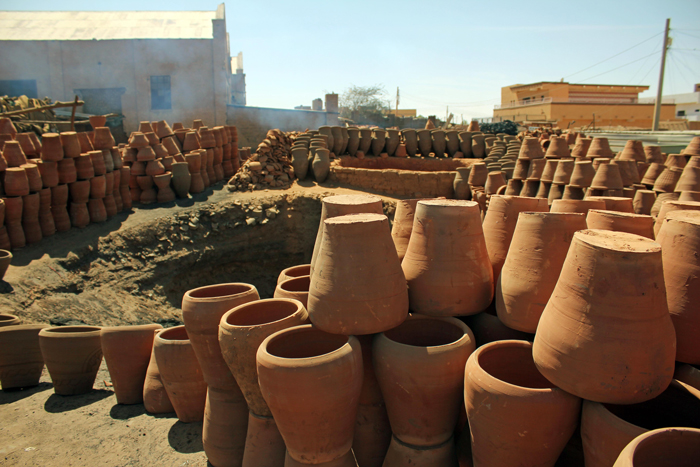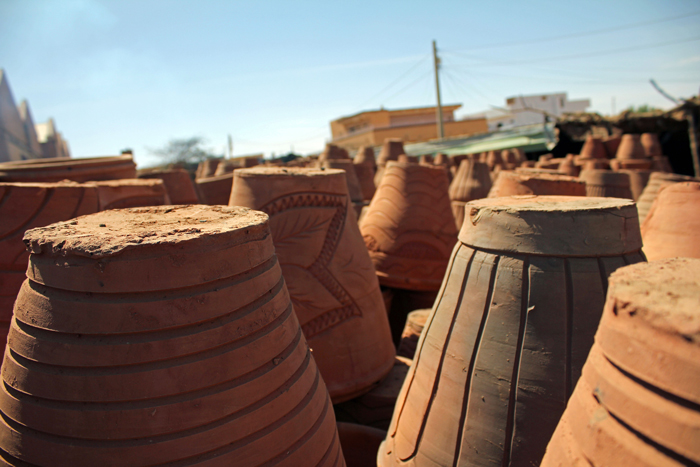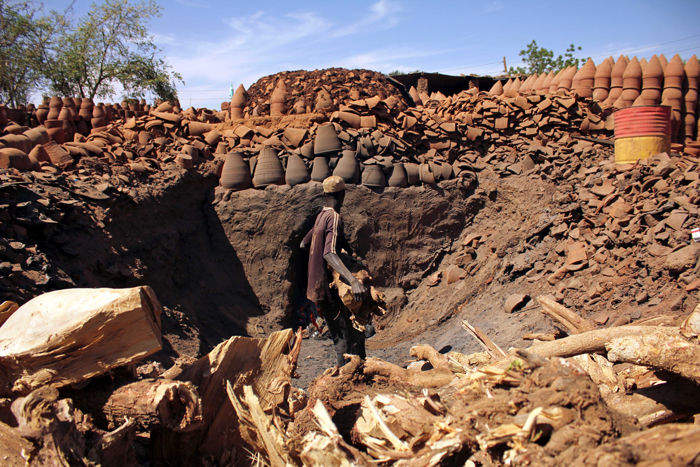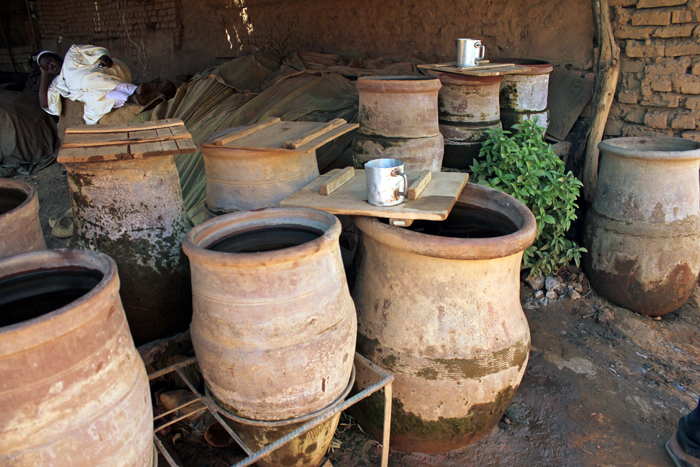The streets in Sudan are lined with pottery. Every few hundred meters large clay pots are placed, full of clean, drinking water. And the clay keeps the water cool, even in the desert’s baking sun.

“The Sudanese are very generous,” my guide explained when I asked about the jugs. “They’ll put water in the pots every morning for people to drink because it gets so hot.” In fact, the water in Sudan is the best I’ve ever had. It’s a touch on the sweet side and pumped straight from the Nile.
My guide explained that, “The age-old tradition of pottery making is a skill passed down through the generations. But it’s a dying tradition.”

On the main road we came across a huge clay compound. From this one location the clay is collected, mashed up by a young boy whose sole duty is to crush out all the air as though he were crushing grapes. Beside him sits the pot maker.

He sits for hours, moulding and shaping the pots and remarkably, each pot looks exactly the same as the one before. There’s absolutely no difference, yet all of the pots are hand made. Once moulded into shape, the pots are placed in the kiln which is fired by a huge fire-pit dug into the clay mound.

Each person in the compound has their specific job; the air-crusher, the clay collector, the fire controller and the pot maker. Clay is quite popular in Sudan and found abundantly. In fact, most of the houses are built of clay – clay bricks are moulded and simply left in the sun to dry, becoming as hard and as reliable as standard bricks.

“Because of the plastic coolers coming in, this tradition will soon be lost,” my guide said sadly.
Yet again, plastic seems to be taking over livelihoods and it’s a sad fate that old traditions like these are doomed. You might think of it as progress or development but really it sets us back and with the continuing consumption of plastic we continue to suffocate our planet – the one true home we really should be taking better care of.
Read more:
To comment on this story: Login (or sign up) to our app here - it's a troll-free safe place 🙂.![]()






